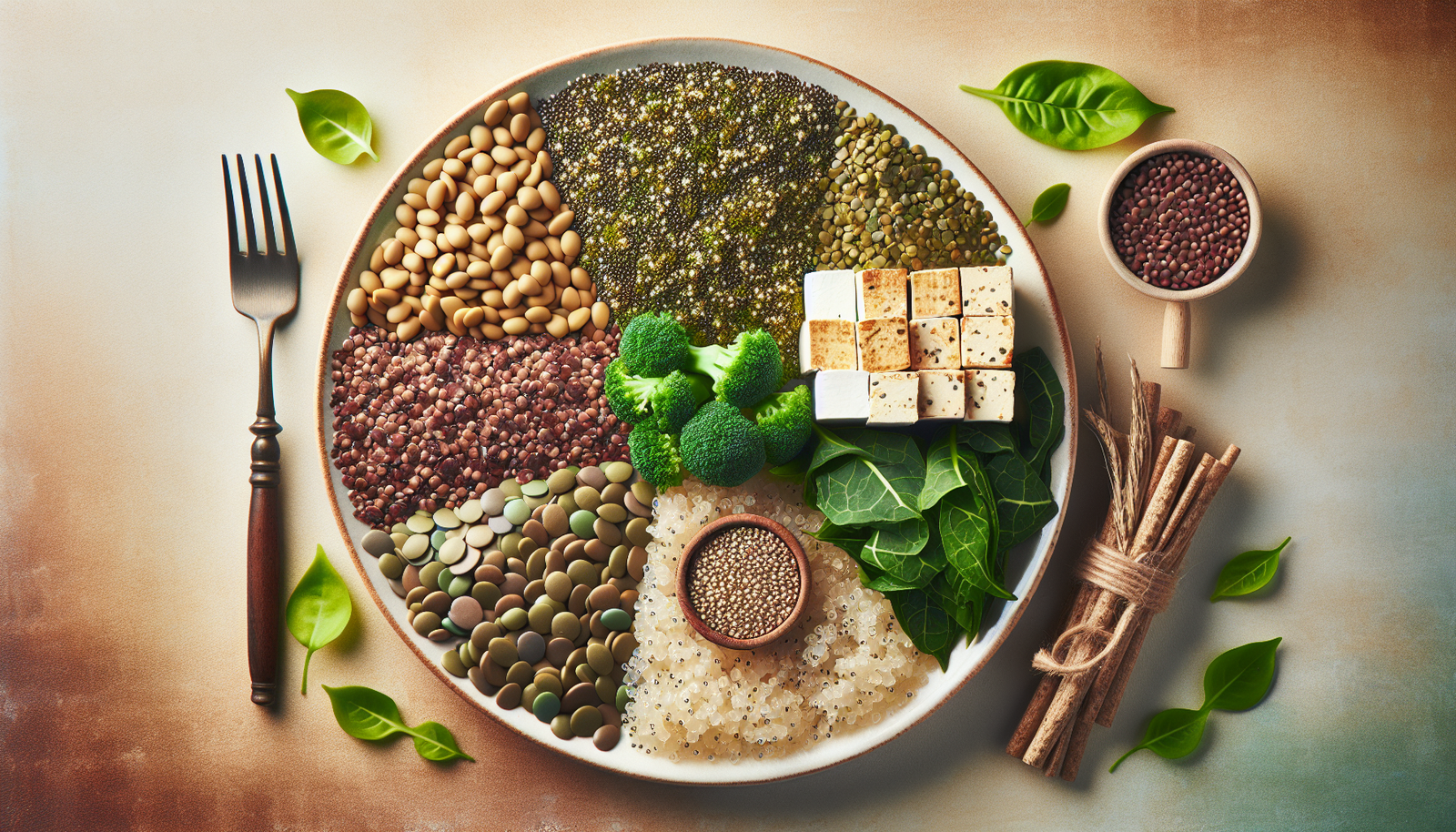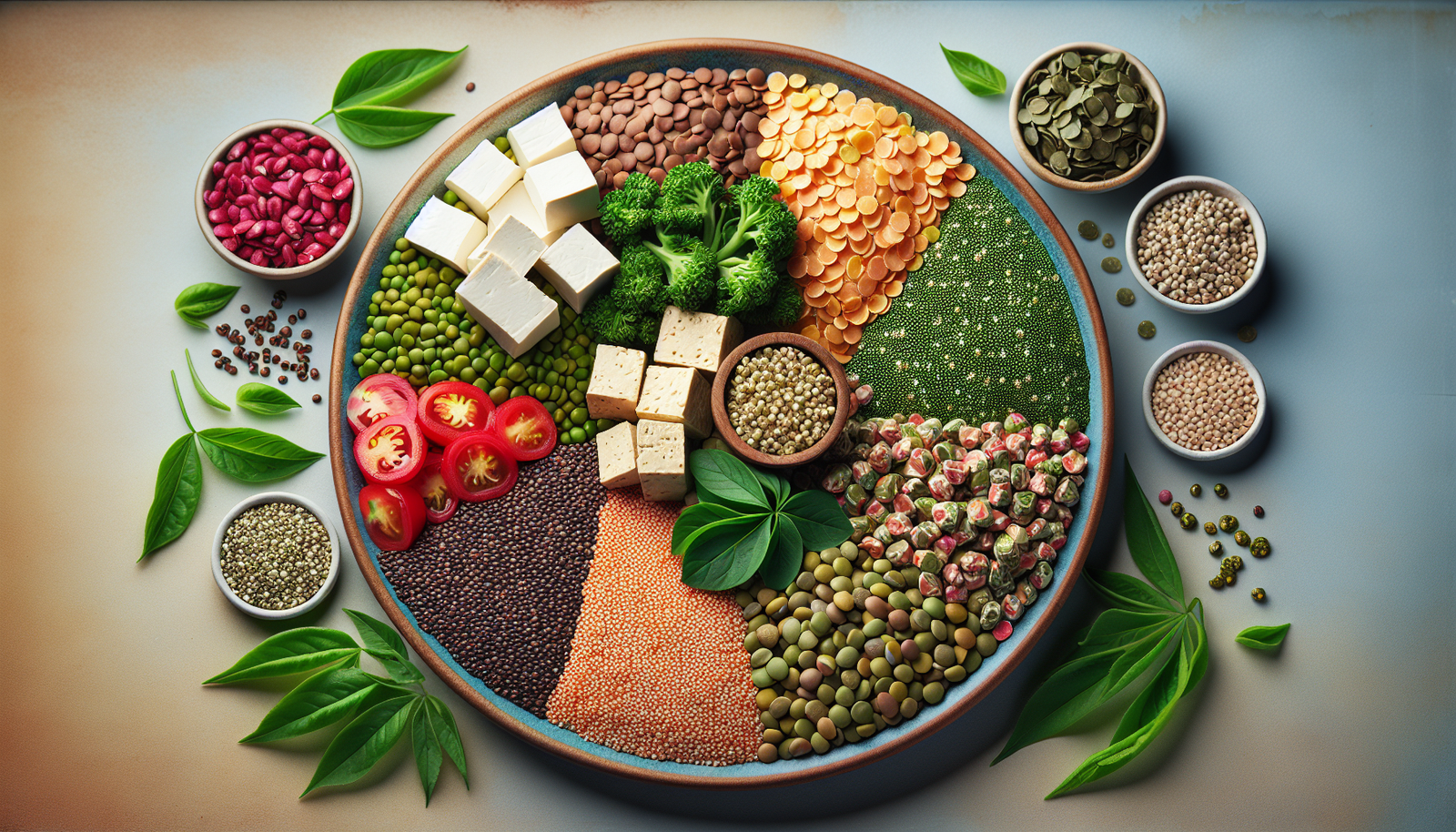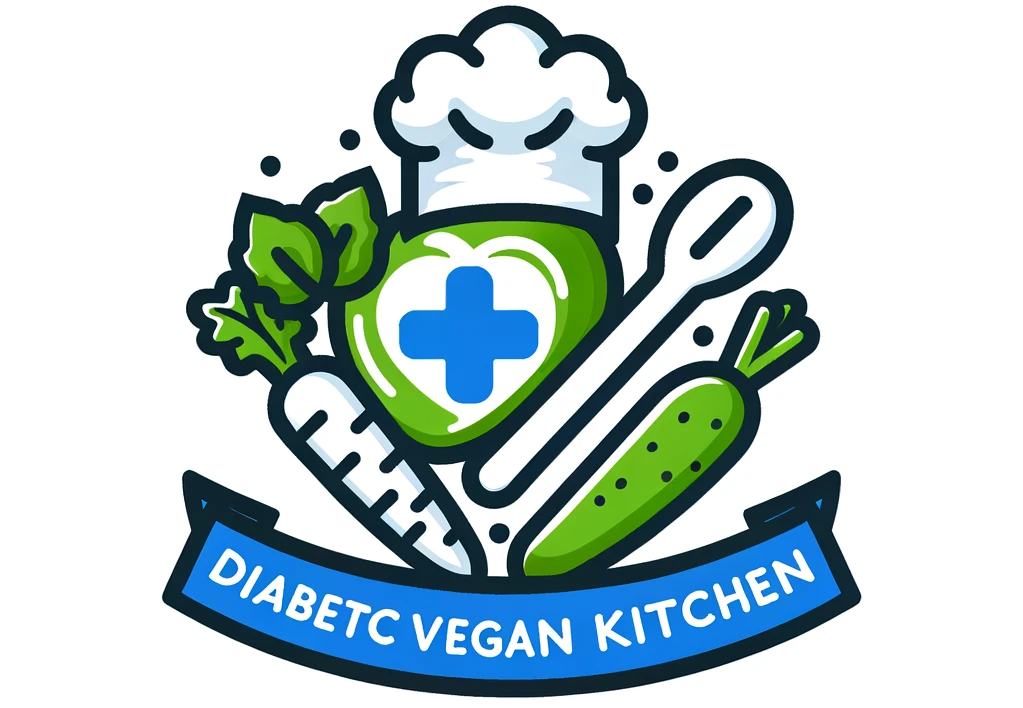Looking for ways to incorporate high-protein vegan foods into your diabetic meal plan? Well, you’ve come to the right place! In this article, we’ll explore a selection of plant-based options that are not only rich in protein, but also suitable for managing diabetes. By making smart choices and including these nutritious ingredients in your meals, you can enjoy a well-rounded and satisfying diet that supports your health goals. So, let’s dive in and discover some delicious, protein-packed vegan foods that will amplify the flavors on your plate while keeping your blood sugar levels in check.
Protein Sources
Protein is an essential macronutrient that plays a crucial role in the body’s overall health and function. For those following a vegan diet, obtaining an adequate amount of protein can sometimes be a concern. However, there are plenty of plant-based protein sources that are perfect for a diabetic meal plan. Let’s explore some of the top options.
Tofu
Tofu, also known as bean curd, is a popular protein source for vegans. Made from soybeans, tofu is not only high in protein but also low in carbohydrates, making it an excellent choice for individuals with diabetes. It is versatile and can be used in various recipes, including stir-fries, soups, and even desserts.
Tempeh
Another soy-based protein option is tempeh. This fermented soybean product contains a significant amount of protein and fiber, which can help control blood sugar levels. Tempeh has a nutty flavor and a firm texture, making it an ideal substitute for meat in dishes like stir-fries, sandwiches, and salads.
Seitan
Seitan, also known as wheat gluten, is an excellent protein source for vegans. It is made from gluten, the protein found in wheat, and has a chewy texture that resembles meat. While seitan is not suitable for individuals with gluten intolerance or sensitivity, it can be a valuable addition to a diabetic meal plan for those without such restrictions.
Lentils
Lentils are legumes that are packed with protein and fiber, making them an excellent choice for individuals with diabetes. They have a low glycemic index, meaning they don’t cause a rapid spike in blood sugar levels. Lentils are incredibly versatile and can be used in soups, stews, salads, and even vegetarian patties.
Chickpeas
Chickpeas, also known as garbanzo beans, are not only delicious but also a fantastic source of protein for vegans. They are a staple in Mediterranean and Middle Eastern cuisines and can be used in a variety of dishes, such as hummus, curries, and salads. Chickpeas are rich in fiber, which can help regulate blood sugar levels and promote satiety.
Quinoa
Quinoa is a nutrient-dense whole grain that is loaded with protein, making it an excellent choice for vegans and individuals with diabetes. It is considered a complete protein, meaning it contains all nine essential amino acids that the body needs. Quinoa can be used as a base for salads, stir-fries, and even as a substitute for rice in various dishes.
Hemp Seeds
Hemp seeds are tiny powerhouses of nutrition, packed with protein, healthy fats, and essential minerals. They are an excellent plant-based protein option for individuals with diabetes. Hemp seeds can be sprinkled on salads, added to smoothies, or incorporated into baked goods to boost their nutritional value.
Chia Seeds
Chia seeds are another superfood that is rich in protein, fiber, and omega-3 fatty acids. They have a gel-like texture when soaked in liquid, making them a great addition to puddings, smoothies, or as an egg substitute in vegan baking. Chia seeds can help stabilize blood sugar levels and promote a feeling of fullness.
Soy Milk
Soy milk is a popular dairy milk alternative that provides a significant amount of protein. It is made from soybeans and fortified with essential nutrients, making it a nutritious choice for vegans and individuals with diabetes. Soy milk can be used in smoothies, hot beverages, cereals, and even in cooking and baking.
Pea Protein
Pea protein is derived from yellow split peas and is an excellent option for individuals with diabetes. It is a highly digestible and hypoallergenic protein source that can help regulate blood glucose levels. Pea protein is available as a powder, making it easy to incorporate into smoothies, shakes, and baked goods.
Protein-Packed Vegetables
While vegetables are not typically thought of as high-protein sources, many of them contain a surprising amount of protein. Incorporating these protein-packed vegetables into a diabetic meal plan is a smart choice for vegans looking to meet their protein needs.
Spinach
Spinach is not only a rich source of vitamins and minerals but also a vegetable with a decent protein content. It can be enjoyed raw in salads, sautéed as a side dish, or added to smoothies for an extra protein boost.
Broccoli
Broccoli is a versatile vegetable that is not only rich in fiber but also contains a fair amount of protein. This cruciferous vegetable can be steamed, roasted, stir-fried, or even enjoyed raw as a snack or in salads.
Kale
Kale is a nutrient-dense leafy green that is packed with protein, vitamins, and minerals. It can be used in salads, sautéed as a side dish, or even blended into smoothies for an added protein kick.
Artichokes
Artichokes are not only delicious but also surprisingly high in protein. Whether grilled, steamed, or roasted, artichokes provide a satisfying and nutritious addition to any diabetic meal plan.
Brussels Sprouts
Brussels sprouts are another cruciferous vegetable that is rich in protein and fiber. They can be roasted, sautéed, or enjoyed raw in salads for a tasty and protein-packed side dish.
Asparagus
Asparagus is a nutrient-rich vegetable that contains a good amount of protein. It can be grilled, sautéed, or roasted to enhance its flavor and make it an excellent addition to a diabetic meal plan.
Cauliflower
Cauliflower is low in calories but high in protein and fiber. It can be mashed, roasted, or used as a rice substitute in various dishes, making it a versatile and nutritious vegetable option for individuals with diabetes.
Mushrooms
Mushrooms are not only incredibly flavorful but also a surprising source of protein. Whether used in soups, stir-fries, or as a meat substitute in burgers, mushrooms add a unique texture and boost of protein to any dish.
Green Peas
Green peas are not only tasty but also a fantastic source of plant-based protein. They can be enjoyed both fresh and frozen and can be added to various dishes, such as soups, salads, and stir-fries.
Sweet Potatoes
Sweet potatoes are not only loaded with vitamins and minerals but also provide a reasonable amount of protein. They can be baked, roasted, or mashed to create a nutritious and protein-rich side dish.

Plant-Based Protein Powders
Protein powders are a convenient and easy way to boost protein intake, especially for vegans. Here are some plant-based protein powders that are suitable for individuals with diabetes.
Pea Protein Powder
Pea protein powder is made from yellow split peas and is a high-quality, easily digestible protein source. It is rich in essential amino acids and can aid in muscle recovery and repair. Pea protein powder can be added to smoothies, shakes, or even baked goods.
Hemp Protein Powder
Hemp protein powder is derived from hemp seeds and is a complete protein source that contains all essential amino acids. It is also rich in omega-3 fatty acids and fiber, making it a nutritional powerhouse. Hemp protein powder can be incorporated into smoothies, energy bars, or used as a supplement in various recipes.
Soy Protein Powder
Soy protein powder is made from defatted soybeans and is an excellent option for individuals with diabetes. It is rich in protein and low in carbohydrates, making it suitable for blood sugar control. Soy protein powder can be added to shakes, smoothies, or used in baking recipes for a protein-packed treat.
Brown Rice Protein Powder
Brown rice protein powder is an excellent option for individuals with allergies or sensitivities to soy or dairy. It is derived from brown rice and contains all essential amino acids. Brown rice protein powder can be added to smoothies, protein balls, or used as a supplement in baking recipes.
Mixed Plant-Based Protein Powders
There are also various mixed plant-based protein powders available on the market, which combine different protein sources to provide a complete amino acid profile. These blends often include ingredients like pea protein, rice protein, hemp protein, and chia seeds. Mixed plant-based protein powders can be a convenient way to boost protein intake and enhance the nutritional value of meals and snacks.
Nuts and Seeds
Nuts and seeds are not only delicious but also packed with protein, healthy fats, and essential nutrients. Including a variety of nuts and seeds in a diabetic meal plan can offer numerous health benefits.
Almonds
Almonds are a nutrient-dense nut that is rich in protein, fiber, and healthy fats. They can be enjoyed as a snack, added to salads, or used as a topping for various dishes.
Walnuts
Walnuts are packed with protein, omega-3 fatty acids, and antioxidants. They can be added to baked goods, sprinkled on salads, or enjoyed on their own as a quick and nutritious snack.
Pistachios
Pistachios are another protein-rich nut that can be enjoyed as a snack or used in a variety of recipes. They are also a great source of healthy fats and antioxidants.
Cashews
Cashews are not only delicious but also an excellent source of protein. They can be consumed as a snack, used in vegan cheese alternatives, or ground into a creamy cashew butter.
Flaxseeds
Flaxseeds are tiny nutritional powerhouses that are rich in protein, fiber, and omega-3 fatty acids. They can be ground and added to smoothies, sprinkled on yogurt or oatmeal, or used as an egg substitute in vegan baking.
Chia Seeds
Chia seeds are another type of seed that is high in protein, fiber, and omega-3 fatty acids. They can be added to smoothies, puddings, or used as a topping for cereals or salads.
Pumpkin Seeds
Pumpkin seeds are a protein-rich seed that is also high in iron and magnesium. They can be roasted and enjoyed as a snack, sprinkled on salads, or used in baking.
Sunflower Seeds
Sunflower seeds are commonly enjoyed as a snack but are also a good source of protein. They can be added to trail mixes, sprinkled on salads, or used in homemade granola bars.
Sesame Seeds
Sesame seeds are tiny seeds that are packed with protein, healthy fats, and essential minerals. They can be used to make tahini, sprinkled on stir-fries, or added to baking recipes.
Hemp Seeds
Hemp seeds are not only a great source of protein but also contain all essential amino acids. They can be sprinkled on salads, added to smoothies, or incorporated into baked goods to enhance their nutritional value.
Including a variety of nuts and seeds in a vegan meal plan can help provide an adequate amount of protein and other essential nutrients.

Whole Grains
Whole grains are an important part of a balanced vegan meal plan, providing not only carbohydrates but also valuable amounts of protein. Here are some protein-rich whole grains to include in a diabetic meal plan.
Quinoa
Quinoa is a nutrient-dense whole grain that is not only rich in protein but also a complete protein source. It can be used as a base for salads, added to soups, or enjoyed as a side dish.
Brown Rice
Brown rice is a whole grain that contains a good amount of protein. It can be enjoyed as a side dish, used in stir-fries, or incorporated into sushi rolls.
Barley
Barley is a versatile whole grain that is not only rich in protein but also high in fiber. It can be used in soups, stews, or as a substitute for rice in various dishes.
Buckwheat
Despite its name, buckwheat is not related to wheat and is a gluten-free whole grain. It is rich in protein and can be used to make hearty porridges, added to salads, or used in baking.
Oats
Oats are a nutritious whole grain that is not only high in protein but also rich in fiber. They can be enjoyed as oatmeal, used in baking, or incorporated into granola bars.
Millet
Millet is a gluten-free whole grain that is packed with protein, fiber, and essential minerals. It can be used in pilafs, salads, or enjoyed as a side dish.
Whole Wheat Bread
Whole wheat bread is made from whole wheat flour, which retains the bran and germ, making it higher in protein and fiber compared to refined white bread. It is a nutritious choice for sandwiches, toast, or as a side with meals.
Whole Wheat Pasta
Whole wheat pasta is another excellent source of protein for vegans. It is made with whole wheat flour, which provides higher amounts of fiber and protein compared to regular pasta.
Corn
Corn is a whole grain that is not only tasty but also a good source of protein. It can be enjoyed on the cob, added to salads, or used in various corn-based products.
Wild Rice
Wild rice is a gluten-free whole grain that is rich in protein and fiber. It can be used in pilafs, salads, or added to soups and stews for a protein-packed meal.
Including a variety of protein-rich whole grains in a diabetic meal plan can help provide essential nutrients and maintain steady blood sugar levels.
Legumes and Beans
Legumes and beans are not only affordable and versatile but also excellent sources of plant-based protein. They are a must-have in a diabetic meal plan for vegans. Here are some protein-packed legumes and beans to consider.
Lentils
Lentils are legumes that are rich in protein and fiber, making them an ideal choice for individuals with diabetes. They have a low glycemic index, meaning they don’t cause a rapid spike in blood sugar levels. Lentils are incredibly versatile and can be used in soups, stews, salads, and even vegetarian patties.
Chickpeas
Chickpeas, also known as garbanzo beans, are not only delicious but also a fantastic source of protein for vegans. They are a staple in Mediterranean and Middle Eastern cuisines and can be used in a variety of dishes, such as hummus, curries, and salads. Chickpeas are rich in fiber, which can help regulate blood sugar levels and promote satiety.
Black Beans
Black beans are a popular legume that is not only rich in protein but also high in fiber. They can be used in soups, stews, salads, or even as a base for vegan burgers.
Kidney Beans
Kidney beans are packed with protein, fiber, and essential minerals. They can be used in chili, added to salads, or used as a filling in tacos or burritos.
Pinto Beans
Pinto beans are a versatile legume that is high in protein and fiber. They can be used in Mexican-inspired dishes, such as refried beans, or added to soups and stews for a protein boost.
Black-Eyed Peas
Black-eyed peas are not only delicious but also a valuable source of protein. They can be used in soups, stews, or even enjoyed as a side dish.
Navy Beans
Navy beans, also known as haricot beans, are rich in protein, fiber, and essential minerals. They can be used in a variety of dishes, such as baked beans, stews, or even in salads.
Soybeans
Soybeans are a complete protein source, meaning they provide all essential amino acids the body needs. They can be used in various forms, such as tofu, tempeh, or edamame, and are a versatile addition to a diabetic meal plan.
Split Peas
Split peas are a type of legume that is high in protein and fiber. They are commonly used in soups, stews, or even mashed to make a hearty split pea soup.
Lima Beans
Lima beans are a good source of protein and fiber, making them a nutritious choice for a diabetic meal plan. They can be added to soups, stews, or used in casseroles for an extra protein boost.
Legumes and beans are not only rich in protein but also provide a significant amount of fiber and other essential nutrients.

Soy Products
Soy products are derived from soybeans and are a popular choice among vegans due to their high protein content and versatility. Here are some soy-based products to consider for a diabetic meal plan.
Tofu
Tofu, also known as bean curd, is a versatile soy-based product that is packed with protein. It can be used in various recipes, such as stir-fries, soups, and even desserts. Tofu comes in different textures, including soft, medium, and firm, which are suited for different cooking methods.
Edamame
Edamame is young soybeans that are harvested before they fully ripen. They are not only protein-rich but also a good source of fiber and essential minerals. Edamame can be enjoyed steamed, boiled, or added to salads for a nutritious protein-packed snack.
Soy Milk
Soy milk is a popular non-dairy milk alternative that is made from soybeans. It provides a significant amount of plant-based protein and is fortified with essential nutrients, making it a nutritious choice for individuals with diabetes. Soy milk can be used in smoothies, hot beverages, cereals, and even in cooking and baking.
Tempeh
Tempeh is a fermented soybean product that is rich in protein and probiotics. It has a nutty flavor and a firm texture, making it an ideal substitute for meat in dishes like stir-fries, sandwiches, and salads. Tempeh is also a good source of fiber, which can help regulate blood sugar levels.
Soy Yogurt
Soy yogurt is a delicious dairy-free alternative to traditional yogurt. It is made from soy milk and is a good source of protein and probiotics. Soy yogurt can be enjoyed on its own, used as a topping for fruit or granola, or incorporated into smoothies and baked goods.
Soy Cheese
Soy cheese is a vegan alternative to dairy cheese that is made from soybeans. It is a suitable option for individuals with diabetes, as it is low in carbohydrates and cholesterol-free. Soy cheese can be used in various recipes, such as sandwiches, pizzas, and casseroles.
Soy Ice Cream
Soy ice cream is a delicious frozen treat that is made from soy milk instead of dairy. It is a good source of protein and is lower in saturated fat compared to traditional ice cream. Soy ice cream comes in a variety of flavors and can be enjoyed by individuals with diabetes as an occasional sweet indulgence.
Soy Protein Isolate
Soy protein isolate is a highly refined form of soy protein that is derived from soybeans. It is a concentrated source of protein and is often used in protein powders and bars. Soy protein isolate can be used to supplement protein intake and support muscle recovery and repair.
Soy-Based Meat Substitutes
Soy-based meat substitutes, such as veggie burgers, sausages, deli slices, chicken nuggets, meatballs, and ground, are widely available and provide a convenient way to increase protein intake while following a vegan meal plan. These products are often made from soy protein, wheat gluten, or a combination of plant-based ingredients to mimic the taste and texture of meat.
Soy Sauce
Soy sauce is a popular condiment that is made from fermented soybeans. It adds a savory flavor to dishes and can be used as a marinade or seasoning. Soy sauce is low in calories and carbohydrates, making it a suitable choice for individuals with diabetes.
Soy products are an excellent source of protein for vegans and can easily be incorporated into a diabetic meal plan for a well-rounded and nutritious diet.
Non-Dairy Milk
Non-dairy milk alternatives are an excellent choice for vegans and individuals with diabetes who need to avoid dairy products. Here are some popular non-dairy milk options that provide protein.
Soy Milk
Soy milk is a popular non-dairy milk alternative that is rich in protein. It is made from soybeans and fortified with essential nutrients, making it a nutritious choice for individuals with diabetes. Soy milk can be used in smoothies, hot beverages, cereals, and even in cooking and baking.
Almond Milk
Almond milk is made from ground almonds and water and is a lower-calorie option compared to soy milk. While it is not as high in protein as soy milk, almond milk still provides a moderate amount. Almond milk can be enjoyed on its own, used in smoothies, or added to recipes as a dairy milk substitute.
Coconut Milk
Coconut milk is a creamy and flavorful milk alternative that is made from the flesh of coconuts. While it is not as high in protein as soy milk, coconut milk can still be a part of a balanced diabetic meal plan as a source of healthy fats. It can be used in both sweet and savory dishes, such as curries, desserts, and smoothies.
Rice Milk
Rice milk is made from milled rice and filtered water, making it a suitable option for individuals with allergies or sensitivities to soy, nuts, or gluten. While it is lower in protein compared to soy milk, rice milk can still be enjoyed as a dairy milk alternative in various recipes.
Cashew Milk
Cashew milk is a creamy and slightly sweet milk alternative that is made from cashew nuts and water. It is a good source of protein and healthy fats, making it a nutritious choice for individuals with diabetes. Cashew milk can be used in recipes, such as soups, sauces, or smoothies.
Oat Milk
Oat milk is made from oats and water and has a naturally sweet flavor. It is a good source of protein and dietary fiber, making it a suitable choice for individuals with diabetes. Oat milk can be enjoyed on its own, used in coffee or tea, or added to recipes as a dairy milk substitute.
Hemp Milk
Hemp milk is made from hemp seeds and water and is a great source of plant-based protein. It is rich in essential fatty acids and provides a creamy texture to recipes. Hemp milk can be used in smoothies, hot beverages, or enjoyed on its own as a dairy milk alternative.
Flax Milk
Flax milk is made from flax seeds and filtered water and is a good source of omega-3 fatty acids, protein, and fiber. It has a mild and nutty flavor and can be used as a dairy milk substitute in various recipes.
Macadamia Nut Milk
Macadamia nut milk is a rich and creamy milk alternative that is made from macadamia nuts and water. It is not only delicious but also provides a decent amount of protein. Macadamia nut milk can be enjoyed on its own, used in coffee or tea, or added to recipes that call for dairy milk.
Quinoa Milk
Quinoa milk is made from cooked quinoa and water and is a suitable alternative for individuals with allergies or sensitivities to soy, nuts, or gluten. It is a good source of protein and can be used in recipes that call for dairy milk.
Including non-dairy milk alternatives in a vegan diabetic meal plan can help maintain blood sugar levels and provide essential nutrients.

Vegan Yogurt
Vegan yogurt is another dairy-free alternative that is suitable for vegans and individuals with diabetes. Here are some delicious vegan yogurt options to consider.
Soy Yogurt
Soy yogurt is a dairy-free alternative to traditional yogurt that is made from soy milk. It is a good source of protein and probiotics, which can promote gut health. Soy yogurt can be enjoyed on its own, used as a topping for fruit or granola, or incorporated into smoothies and baked goods.
Almond Milk Yogurt
Almond milk yogurt is made from almond milk and contains gut-friendly probiotics. It is a tasty and protein-rich alternative to dairy yogurt that can be enjoyed as a snack or used in various recipes.
Coconut Milk Yogurt
Coconut milk yogurt is a creamy and flavorful yogurt alternative that is made from coconut milk. It is rich in healthy fats and provides a moderate amount of protein. Coconut milk yogurt can be enjoyed on its own, used as a topping, or incorporated into recipes.
Cashew Milk Yogurt
Cashew milk yogurt is a creamy and protein-rich yogurt alternative that is made from cashew milk. It contains gut-friendly probiotics and can be enjoyed on its own, used as a topping, or incorporated into recipes.
Oat Milk Yogurt
Oat milk yogurt is a dairy-free alternative that is made from oat milk and contains beneficial probiotics. It is rich in fiber and protein and can be enjoyed as a snack or used in various recipes.
Rice Milk Yogurt
Rice milk yogurt is a yogurt alternative that is made from rice milk and provides a moderate amount of protein. It is a suitable option for individuals with allergies or sensitivities to other types of plant-based yogurt.
Hemp Milk Yogurt
Hemp milk yogurt is a nutritious and protein-packed yogurt alternative that is made from hemp milk. It contains gut-friendly probiotics and can be enjoyed on its own or used in a variety of dishes.
Flax Milk Yogurt
Flax milk yogurt is a plant-based yogurt option that is made from flax milk. It is rich in omega-3 fatty acids, fiber, and protein, making it a nutritious addition to a diabetic meal plan.
Macadamia Nut Milk Yogurt
Macadamia nut milk yogurt is a creamy and protein-rich yogurt alternative that is made from macadamia nut milk. It contains gut-friendly probiotics and can be enjoyed on its own, used as a topping, or incorporated into recipes.
Quinoa Milk Yogurt
Quinoa milk yogurt is a yogurt alternative that is made from quinoa milk and provides a reasonable amount of protein. It is suitable for individuals with allergies or sensitivities to other types of plant-based yogurt.
Including vegan yogurt alternatives in a diabetic meal plan can help promote gut health, provide protein, and offer a delicious and creamy alternative to dairy-based yogurt.
Soy-Based Meat Substitutes
Soy-based meat substitutes are excellent options for vegans looking to include more protein in their diet. Here are some popular soy-based meat substitutes that can be incorporated into a diabetic meal plan.
Tofu
Tofu is a versatile soy-based meat substitute that is rich in protein and low in carbohydrates. It is made from soybeans and has a neutral taste that easily absorbs the flavors of other ingredients. Tofu can be marinated and grilled, stir-fried, or used in soups and stews.
Tempeh
Tempeh is a fermented soybean product that is high in protein, fiber, and probiotics. It has a nutty flavor and a firm texture, making it an ideal substitute for meat in dishes like stir-fries, sandwiches, and salads. Tempeh is also a good source of fiber, which can help regulate blood sugar levels.
Seitan
Seitan, also known as wheat gluten, is made from gluten, the protein found in wheat. It has a meaty texture and can be seasoned and cooked to resemble various meat-based recipes. While seitan is not suitable for individuals with gluten intolerance or sensitivity, it can be a valuable addition to a diabetic meal plan for those without such restrictions.
Textured Vegetable Protein (TVP)
Textured vegetable protein, or TVP, is a soy-based meat substitute that is made from defatted soy flour. It is available in granules or chunks and can be rehydrated and used in various dishes that call for ground meat, such as chili, tacos, or spaghetti sauce.
Veggie Burgers
Veggie burgers are a popular soy-based meat substitute that is available in various flavors. They are typically made from a combination of soy protein, vegetables, grains, and spices. Veggie burgers can be grilled, baked, or pan-fried and enjoyed on a bun or as part of a meal.
Veggie Sausage
Veggie sausages are soy-based meat alternatives that can be enjoyed as a breakfast option or used in various recipes. They come in a variety of flavors and can be grilled, pan-fried, or baked.
Veggie Deli Slices
Veggie deli slices, or deli meats, are soy-based alternatives to traditional deli meats. They are available in various flavors and can be used to make sandwiches, wraps, or added to salads for added protein.
Veggie Chicken Nuggets
Veggie chicken nuggets are a kid-friendly soy-based meat substitute that can be baked or fried for a crispy and tasty meal. They are typically made from a combination of soy protein, vegetables, grains, and spices.
Veggie Meatballs
Veggie meatballs are soy-based alternatives to traditional meatballs. They can be baked, pan-fried, or simmered in sauce. Veggie meatballs can be enjoyed with pasta, added to sandwiches, or used in various recipes.
Veggie Ground
Veggie ground, or ground meat alternatives, are soy-based substitutes for traditional ground meat. They can be used in recipes that call for ground meat, such as tacos, lasagna, or chili.
Soy-based meat substitutes are great alternatives to meat for vegans and can provide a significant amount of protein in a diabetic meal plan.
In conclusion, there are numerous high-protein vegan foods that can be included in a diabetic meal plan. From protein sources like tofu, tempeh, and lentils to protein-packed vegetables such as broccoli, kale, and spinach, there are plenty of options to choose from. Plant-based protein powders, nuts and seeds, whole grains, legumes and beans, soy products, non-dairy milk alternatives, vegan yogurt, and soy-based meat substitutes all offer excellent sources of protein for individuals following a vegan or diabetic meal plan. By incorporating these protein-rich foods into your diet, you can ensure that you are meeting your nutritional needs while managing your blood sugar levels effectively.


